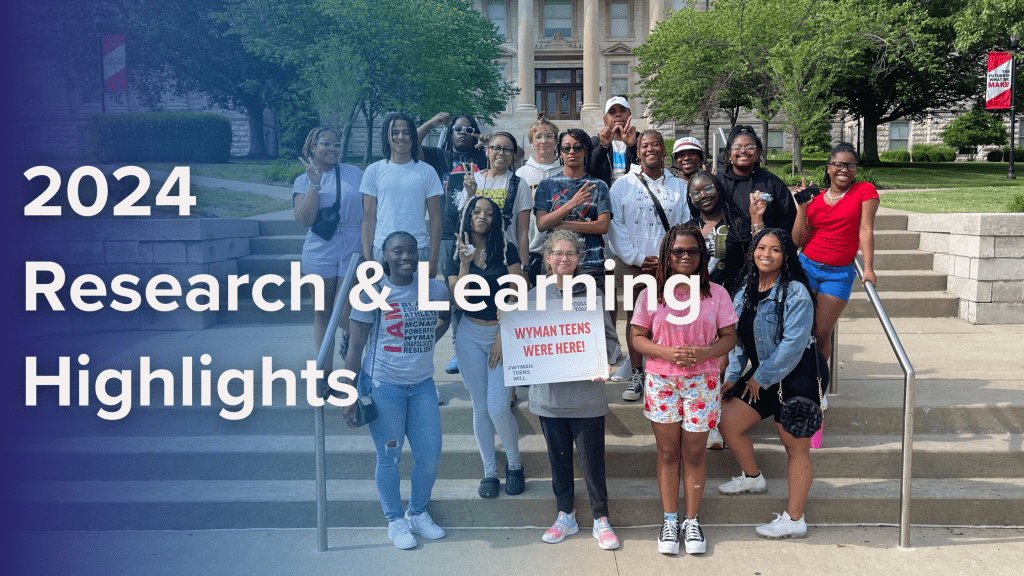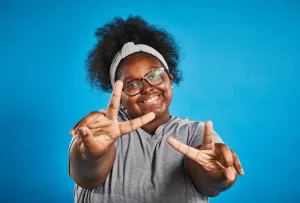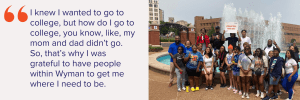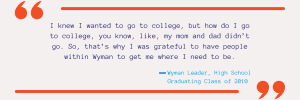2024 Research & Learning Highlights
Background
In 2024, Wyman’s Research & Learning department partnered with Dr. Florian Sichling, Associate Professor of Social Work at UMSL, to explore two key components of the Wyman Leaders program: higher education partnerships and scholarship opportunities. The goal was to better understand, and document, what makes these aspects of programming effective in supporting youth’s postsecondary success.
Data collection and analysis were focused on interviews conducted with staff from our 5 higher education partners (MSU, UMSL, SEMO, UCM, and SLU), as well as current and former Wyman staff, currently enrolled Wyman Leaders youth, and Wyman Leaders alumni. Data on post-secondary enrollment, persistence and completion were also analyzed.
Key Findings
Analysis of postsecondary records from over 500 alumni showed that youth who attended one of Wyman’s higher education partner schools were statistically more likely to complete a degree within six years of enrollment than those who attended non-partner schools. We attribute this success to key components of the Wyman–higher education partnerships, including:
- Strong, multi-level staff relationships within each organization, which help ensure that written agreements are implemented effectively and that students remain supported through staff transitions;
- Ongoing monitoring of student experiences and needs, with regular data sharing between Wyman and its partners to provide timely support; and
- Intentional efforts to build trust and foster a sense of belonging, particularly for students of color at predominantly white institutions.
While strong partnerships are essential, financial support also plays a critical role in postsecondary success—especially for youth from low-income families. Wyman offers several scholarship opportunities to Wyman Leaders, which have proven highly effective in promoting strong outcomes like persistence and graduation rates, often exceeding national benchmarks. For example, 85% of the 34 students who attended Missouri State University (a Wyman partner school) and received the MSU/Morley Scholarship have either graduated or are still progressing toward graduation.
Key takeaways from our exploration of how scholarships support youth include:
- Graduating with low or no debt is critical for enabling social and economic mobility.
- Flexible scholarship administration, such as adapting eligibility criteria as student needs evolve, and providing complementary support are essential. Financial aid alone isn’t enough; addressing student non-financial challenges is just as important.
- Financial support is most effective when they exist within the context of a strong partnership.
- From students’ perspectives, scholarships reduce stress, build self-esteem, and contribute to a more positive outlook on the future.
Conclusion
Overall, these findings underscore the power of strong institutional partnerships and flexible, student-centered financial support. Wyman’s approach—grounded in trust, collaboration, and a deep understanding of student needs—demonstrates a meaningful path to improving postsecondary outcomes for young people, particularly those from historically marginalized backgrounds. As we continue to learn from and refine our practices, these insights will guide future efforts to expand opportunity and support youth on their journey to and through postsecondary education.





